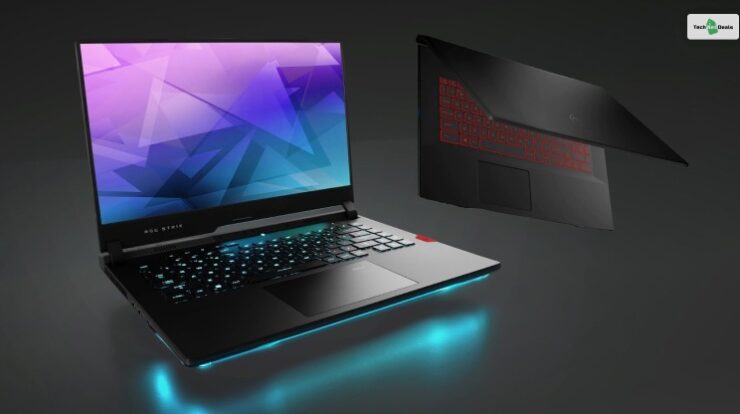
Your idea of how long your laptop should last may well be determined by your age. Older generations expect laptops to have a life of eight or more years. Many young people, on the other hand, have grown up expecting their devices to have a much shorter life. This is partly because tech evolves more quickly today, and partly because manufacturers of smart devices have primed us to replace tech every couple of years.
But how long should you really own a laptop for? Should you be buying a laptop every three years or can you hold onto your device for eight long years? Most importantly, do laptop manufacturers design them with a very short lifespan in mind?
Of course, if your laptop is stolen you’ll need to replace it immediately. Make sure you have laptop insurance coverage so that you’re not left in the lurch. Laptop coverage will allow you to claim immediately so that you can get back to what you need to do.
Here are some indicators of how long a laptop should last.
What device do you own?
Yes, the identity of your device’s manufacturer makes a big difference here. Apple has a reputation for building long-lasting devices and it is still well-deserved. A MacBook is made of such quality materials that the only reason new upgrades comes along is because software needs frequently outpace the hardware. 4Gb of RAM was seen as plenty just a few years ago, but is now laughed off as far from adequate to use even medium impact graphics programs and computer games.
On the other hand, rather than relying on their machines “being built to break”, other laptop makers are catching up.
That being said, a budget laptop will likely last three years at most, with most higher end laptops lasting up to five years. This is in contrast to the average lifespan of Macbooks (both Air and Pro models), which according to experts is 7.2 years. A Macbook may be more expensive than its competitors, but with this kind of lifespan, the investment is well worth it. Again, though, while your MacBook will be reliable for years on end, what was once the top of the line hardware will start to feel more than a little outdated as it nears the end of those seven years.
Anyway, this mostly applies to your average consumer. More discerning laptop owners will have very different expectations. This is because they build their laptops themselves, picking and choosing different parts. If you built your own laptop, you’ll know that lifespan is impossible to pinpoint. After all, if a part starts slowing down, you can consider just replacing or upgrading it.
How do you use your device?
A projected lifespan means little if you don’t take how you use your device into account. The reality is that heavy usage drains your laptop more quickly. You’re pushing your device harder, after all. If you’re doing complex graphic design or music production on your Macbook, all day every day, you can expect it to last a couple of years less. Ironically enough, though, Macs, with their much higher price tags and emphasis on SSD hard drives and impressive video cards, are usually used for these purposes in a way that Windows based and Chromebooks are not.
Your battery in particular is likely to degrade more rapidly, especially if you are forever working on the go. The more often you need to charge it, the quicker it is going to need to be replaced. In some cases, when your battery no longer lives up to your expectations, it may be time to replace the device itself. However, you should find out whether a new battery might improve overall performance. Don’t forget, unlike your average Dell or HP, installing a new battery in a laptop requires expert help, which often costs more than the already very expensive battery itself!
It is also important to consider how offloading some of the weight carried by your laptop may help. A hard drive that is close to full may slow down your device. You could significantly improve performance – and thereby lengthen lifespan – simply by moving much of your storage to an external hard drive. This is especially true with Macs and Windows-based laptops that feature Solid State Drives rather than the older and cheaper HDD drives, because part of what makes an SSD so much faster than their increasingly outdated predecessors is that they use part of space of the harddrive as virtual memory and having the filled above, roughly, 90% capacity can greatly reduce their speed and their longevity.
Do you get excited by new tech?
Regardless of your laptop’s projected lifespan, you may not want to hold onto your device for so long. New tech can be very exciting, and sometimes an upgrade is just too good to postpone.
At present, I’m using an M1 Macbook Pro 13 Inch that I bought at the beginning of 2021. In other words, it is less than two years old. It still has at least five years in it. But the new Macbook Pro 14 Inch is looking extremely enticing at the moment. While I’m unlikely to take the plunge and get it, the next iteration may be too good to ignore.
For lovers of good tech, the lifespan of a device may not be so relevant. You can hang onto your device for the better part of a decade. Or you could upgrade when something better comes along.
Even loving the latest tech, though, is only part of the story. If you normally use your machine for casual gaming, work purposes or browsing the internet, the same machine will suffice pretty much until it finally gives in over the next decade. If, however, you work in animation, are an avid eSports competitor or do a lot of video and/ or music editing, you can always expect to need newer and better hardware long before your current setup has expired.



